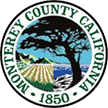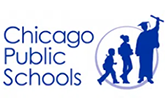CIT offers Kinyarwanda interpreters and translators with legal, medical and specialty experience, including criminal and civil matters, employee meetings, engineering, patent cases, labor disputes, immigration and more.
Although based in Los Angeles, CIT offers comprehensive Kinyarwanda language services including interpretation, translation and transcription, 24 hours a day, 7 days a week, worldwide. Our interpreters and translators are native speakers who have been screened, certified, have provided credentials, field tested, and kept up to date with developments in both English and the Kinyarwanda language through means such as lectures, conferences, and travel. CIT’s Kinyarwanda language interpreters and translators possess in depth knowledge of the Kinyarwanda language, as well as of the culture and history of the Kinyarwanda people, allowing them to provide informed and complete interpretation and translation.
The language of Kinyarwanda, also known as Rwanda or Ruanda, is a Bantu language that comes from the Niger-Congo languages, more specifically the Bantu-Congo branch. About 6.5 million people speak Kinyarwanda in the Republic of Rwanda. This is about 90% of the country’s population. It is approximated that another 25,000 people speak Kinyarwanda in the Congo and another half a million or so speak the language in Burundi and Southern Uganda, known as Fumbira. It is estimated that about 7.3 million people worldwide speak Kinyarwanda. Those who speak Rundi are typically able to understand and speak Kinyarwanda as well.
Kinyarwanda, along with English and French, is an official language of the Republic of Rwanda. Typically, childhood education is taught in Kinyarwanda. Secondary education is taught in either English or French. There are several dialects of the language. They are: Bufumbwa, Gitwa, Hutu, Igikiga, Kiga, Ikinyanduga and Rutwa. The Kinyarwanda language is very similar to other Bantu languages; especially in its use of tones. There are five vowels and 24 consonants. The tones in the language play a very large role in the language, similar to other Niger-Congo languages as it belongs in the same familial group.
The grammar is also similar to other Bantu languages. There are ten classes of nouns, leading to a lot of randomness to determine what class the noun belongs in. In the language, each verb has a root that can be changed by adding certain prefixes that can show subject agreement. There are tenses as well such as present progressive, future and continuous progressive. The language follows the Subject-Verb-Object word order. Additionally, the vocabulary has many loan words from English, French and Swahili. The writing has been standardized since the 1940s.


No matter what your needs may be, we can and are ready to assist you now. We have translators and interpreters standing by 24/7.

CIT's interpreter is such a rockstar, and it’s so great to have him as a lead interpreter for our Board meetings. About Our Interpreters 
Thank you for always being able to handle emergency interpreting assignments with ease. About Urgent Requests 
Thank you for always being able to handle emergency interpreting assignments with ease. About Urgent Requests 
Your translation rates are more competitive than other language service providers I used in the past. About Pricing 

Professionalism matters at CIT. We respond to request inside 24 hours.







